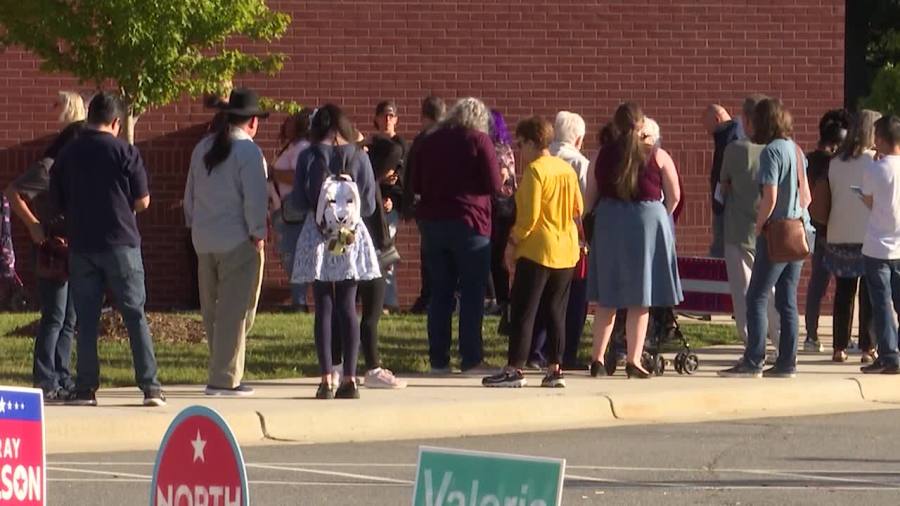On a busy Friday afternoon, the Clemmons Branch Library was bustling with voters eager to participate in early voting, as lines of individuals who had just finished their work wrapped around the building. According to the Forsyth County Board of Elections, over 13,000 ballots were cast early the previous day, with more than 1,200 voters choosing the library as their polling place. This surge in voter turnout is indicative of the heightened engagement seen in the lead-up to what many consider a critical election. Polling booths have become a focal point for citizens hoping to avoid the last-minute rush, reflecting a broader trend in voter behavior this election cycle.
The sense of urgency among voters is palpable, with many expressing strong convictions around their participation. Michael Pfingst emphasized his desire to vote early to avoid larger crowds, while Sheryl Stovall invoked her family’s history of fighting for voting rights, underscoring the importance of having one’s vote counted. Joshua Robinson, at 40 years of age, articulated a sentiment shared by many – this election feels particularly significant, spurring voters to act decisively. The emotions surrounding voting this year highlight a collective awareness of the stakes involved, motivating more individuals to engage in the democratic process.
In a notable turn of events, North Carolina experienced a record-breaking first day of early voting, with over 353,000 ballots cast, surpassing the previous record of 348,000 set in 2020. This uptick in participation can be linked to various societal factors prompting citizens to make their voices heard. Wake Forest Political Science Professor Nate French attributes the fervor to a concerted effort by both major political parties to encourage early voting. While former President Trump had voiced skepticism about the practice, he identified that the current political climate has resulted in greater mobilization from all sides of the political spectrum.
The influence of significant issues such as abortion rights, immigration, and economic conditions are drawing voters to the polls. Professor French highlighted North Carolina’s status as a swing state, which typically inspires voters to recognize the weight of their decision-making in shaping the political landscape. These issues resonate strongly with the electorate, further fueling the urgency surrounding this election and propelling record levels of early voting participation. French’s insights reveal the dynamic interplay between individual issues and broader electoral trends.
Ultimately, there is a strong belief that these early voting numbers will continue to rise as the election period progresses. Professor French predicts that the momentum for early voting will not dwindle, suggesting that as awareness grows, more people will seek to express their political opinions in advance of Election Day. The anticipation of increased voter turnout signals a departure from usual patterns and showcases an evolving engagement with the electoral process, highlighting a shift in how people perceive their role in shaping governance.
In summary, the surge in early voting at locations like the Clemmons Branch Library reflects a broader nationwide trend and signals heightened political engagement among the electorate. Influenced by critical social issues and an understanding of North Carolina’s pivotal swing state status, voters are turning out in record numbers. The commitment to early voting showcased by individuals confirms that many are determined to make their voices count, whether it be to honor their ancestors’ struggles for rights or to address pressing contemporary issues. As we move closer to the election date, it remains likely that this trend will continue, further emphasizing the importance of civic participation and voter turnout in shaping the future of the community and the nation.

